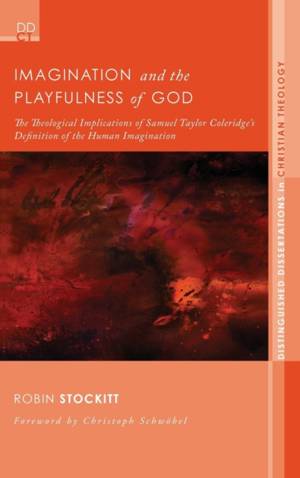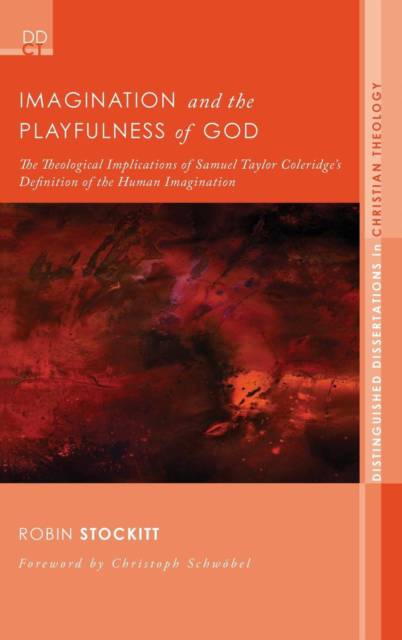
- Afhalen na 1 uur in een winkel met voorraad
- Gratis thuislevering in België vanaf € 30
- Ruim aanbod met 7 miljoen producten
- Afhalen na 1 uur in een winkel met voorraad
- Gratis thuislevering in België vanaf € 30
- Ruim aanbod met 7 miljoen producten
Zoeken
Imagination and the Playfulness of God
The Theological Implications of Samuel Taylor Coleridge's Definition of the Human Imagination
Robin Stockitt
€ 63,95
+ 127 punten
Uitvoering
Omschrijving
The human imagination is a reflection of and a participation in the divine imagination; so mused the romantic poet, philosopher and theologian Samuel Taylor Coleridge. His thinking was intuitive, dense, obscure, brilliant, and deeply influenced by German philosophy. This book explores the development of his philosophical theology with particular reference to the imagination, examining the diverse streams that contributed to the originality of his thought. The second section of this book extrapolates his thinking into areas into which Coleridge did not venture. If God is intrinsically imaginative, then how is this manifested? Can we articulate a theology of the ontology of God that is framed in imaginative and creative terms? Drawing on the groundbreaking work of Huizinga on 'play, ' this study seeks to develop a theological understanding of God's playfulness.
Specificaties
Betrokkenen
- Auteur(s):
- Uitgeverij:
Inhoud
- Aantal bladzijden:
- 200
- Taal:
- Engels
- Reeks:
- Reeksnummer:
- nr. 6
Eigenschappen
- Productcode (EAN):
- 9781498260282
- Verschijningsdatum:
- 12/05/2011
- Uitvoering:
- Hardcover
- Formaat:
- Genaaid
- Afmetingen:
- 152 mm x 229 mm
- Gewicht:
- 435 g

Alleen bij Standaard Boekhandel
+ 127 punten op je klantenkaart van Standaard Boekhandel
Beoordelingen
We publiceren alleen reviews die voldoen aan de voorwaarden voor reviews. Bekijk onze voorwaarden voor reviews.











